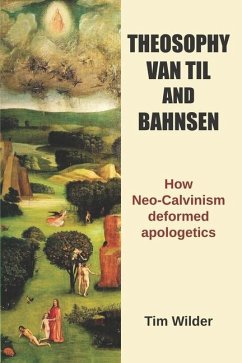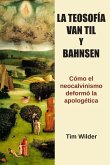Christian presuppositional apologetics relies on the concepts of antithesis, worldview, rejection of autonomous thought, rejection of neutrality, and presupposition. These ideas were taken from Dutch Neo-Calvinism, and a presentation of Christianity based on them was taught in American seminaries as being the most consistent and pure expression of Reformed thought. Before their appearance in Neo-Calvinism they had a history of development in continental theosophy. In the nineteenth century these ideas were introduced within theosophical systems built on the idea of an intuitive view of the cosmos and its origin above time. The concepts of antithesis, autonomous thought, worldview, presupposition, and sphere sovereignty were defined around the idea of the supratemporal knower in a theosophical universe. The ideas were developed and popularized by Dutch Reformed theologians and philosophers, without indicating their source and systemic associations. They were then brought to America in the immigrant churches. Introduced into apologetics, these ideas retained the relationships that were formed by their origin within theosophy. As a result the theory of knowledge used in apologetics was deformed to fit the theosophical concepts. Basic confusions in presuppositional systems come from the theosophical relationships forged between key ideas. Apologetics inherited a confused and unworkable model of knowledge. How these ideas were assimilated from Neo-Calvinism and used by Cornelius Van Til and Greg Bahnsen, in combination with Van Til's use of concepts from idealism, Bahnsen's reliance on methods from analytical philosophy, and their use of foundationalist theories of knowledge are investigated and their incoherence explained.
Hinweis: Dieser Artikel kann nur an eine deutsche Lieferadresse ausgeliefert werden.
Hinweis: Dieser Artikel kann nur an eine deutsche Lieferadresse ausgeliefert werden.








